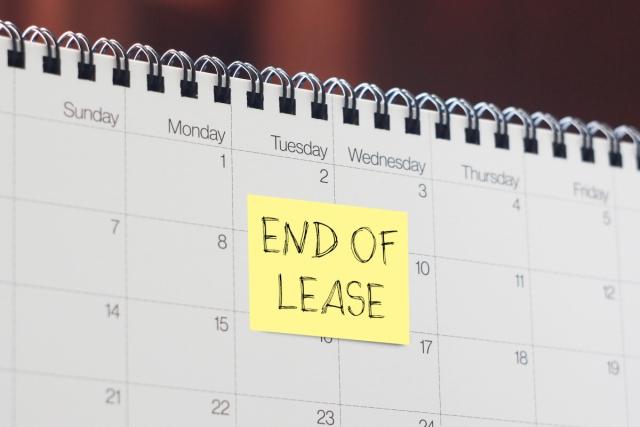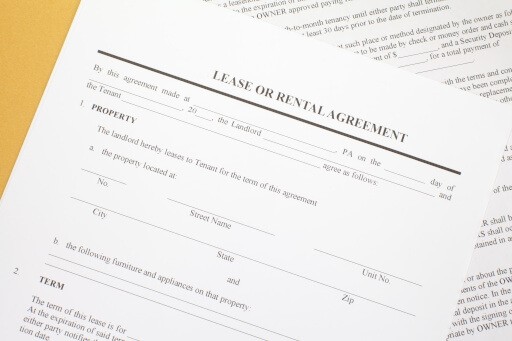
As a landlord, tenant retention is very important because it’s one of the easiest ways to maintain a stream of income from your rental property. Long-term tenants usually continue to pay rent on time and take good care of the property, so landlords aim to renew leases with them. However, what happens if you have an unreliable tenant you don’t want to renew with?
Reasons to Not Renew a Tenant’s Lease
Landlords have the right to decide not to renew a fixed-term lease and don’t have to disclose a reason for non-renewal in most states. Similarly, tenants do not have to explain why they will not renew their lease. Since a lease is a contract, the agreement is no longer binding after the end of the lease term.
However, you still need a just cause for non-renewal. Here are a few common reasons a landlord may choose not to renew a tenant’s lease.
Issues with the tenant
If a tenant has caused major property damage, has multiple noise complaints, doesn’t pay utility bills, or consistently pays rent late, it’s probably in your best interest to avoid renewing with that tenant.
Raising rent
If you’re planning on raising your rent and know that your current tenant will not qualify for your increased price, you have the right to choose not to renew your current tenant’s lease.
Renovating the property
Renovating a property when it’s occupied is never ideal, especially if the renovations will make the property unlivable or significantly impact your tenant’s experience. If you’re planning on conducting major renovations to raise your rental’s property value, it’s probably best not to renew your tenant’s lease so you can make the renovations in a vacant property.
No longer renting the property
If you plan to sell your rental property or turn it into your primary residence, you’ll need to give your tenant enough notice so they can find somewhere else to live.
Regardless of your reasoning, landlords are not allowed to deny renewal as an act of discrimination or retaliation. For example, retaliation could be choosing not to renew with a tenant who files a claim against you, despite them following the terms of the lease and paying rent on time. Discrimination could include terminating a lease because of race, religion, or another protected class. Just like choosing between tenants, landlords can deny a lease renewal based on legitimate business reasons such as paying rent late. Make sure to learn more about fair housing laws to ensure you are making equitable decisions and to prevent a retaliation or discrimination lawsuit.
How to Tell Your Tenant You’re Not Renewing the Lease
Preparing in advance and being professional will make conversations with your tenant about non-renewal easier. By approaching the situation gently, landlords can minimize hard feelings and both parties can move forward.
Give fair notice
Landlords should inform tenants they won’t be renewing with them in advance to give them time to find a new place and move out. Make sure to include in the lease details about the lease renewal period and the amount of notice you’ll give if you don’t want to renew. A lease termination letter, also called an end-of-lease letter, is required to inform tenants that you will not renew their lease.
Each state varies, but a 60-day written notice for landlords and tenants is a common requirement, but month-to-month leases often only require a 30-day notice. Some states also have requirements for what must be included in the notice of non-renewal letter, how long landlords have to send the notice, and who can receive the notice, so be sure to check your state and local laws. If you don’t give proper notice at the end of a one-year lease, the lease will transition to a month-to-month lease until either you or your tenant ends the lease using a 30-day written notice.
Giving your tenant proper notice should give them time to find a new place, but having a holdover tenant or a tenant overstay is possible. In these situations, landlords might use a month-to-month lease, offer cash for keys, or file for eviction.
Prepare the paperwork
Landlords should prepare a written notice and send it within the appropriate timeframe. The letter should be sent to the tenant by certified mail, email, or hand-delivered.
Remember to send a move-out letter a month before the lease ends. Include the date the tenant should have all their belongings moved out of the property, along with any other expectations like where to place the keys.
Lease Termination Letter Template
Here’s an example of a non-renewal letter landlords can use:
[Landlord/Property Manager’s Name]
[Contact]
[Address]
[Date]
[Tenant’s name],
Thank you for leasing with me over the past [period of time]. This letter is to inform you that I will not renew the lease for [address] signed on [lease start date]. As per the laws of the State of [insert state], this is your [insert number of days] notice of non-renewal.
All of your possessions should be removed from the property by [end of lease]. The keys should be returned by [end of lease] as well. Please email or call to schedule the final walk-through inspection.
I can be reached at [phone number and/or email] if you have any questions between now and the end of your lease.
Sincerely,
[Landlord/Property Manager’s Name]
This letter is just an example and shouldn’t be considered legal advice. We recommend contacting an attorney to review the non-renewal letter and other administrative paperwork. Check out our guide about writing lease termination letters for more tips, or download this free lease termination letter template.
Informing a tenant that you will not renew with them might seem intimidating at first, but if you’re considerate and professional, you can handle the situation without any hard feelings. Remember that most states don’t require landlords to provide a reason for non-renewal, but it’s wise to double-check to ensure you’re doing everything legally. As a landlord, you have the right to decide if you want to continue leasing with a tenant, but remember that your decision impacts their life, so it’s important to always give proper notice.
This article was originally published on February 3, 2021, by Jamia Kenan.
FAQs
Is a non-renewal the same as an eviction?
No, a non-renewal is not the same as an eviction. A non-renewal of lease means that a landlord allows the tenant to continue living in the rental through the end of their lease but has chosen not to extend a lease renewal offer to the tenant. When the lease expires, the tenant must move out or face legal consequences. An eviction is a legal process where a landlord forcibly removes a tenant from the property before the lease ends due to lease violations.
How much notice do I have to give if I choose not to renew a tenant’s lease?
Each state differs in terms of how many days’ notice a landlord must give for a yearly or fixed-term lease, but 60 days’ notice is a good rule of thumb. For month-to-month leases, most states require landlords to provide 30 days’ notice, but some states, like Vermont, require 60 or even 90 days’ notice for month-to-month leases. Check your state laws regarding non-renewal notices and plan ahead to give your tenant enough time to find another place to live.
What is the purpose of a notice of non-renewal?
A notice of non-renewal, also called a lease termination letter, is a written document informing a tenant that the landlord will not be extending a lease renewal offer. This allows the tenant to look for another place to live and make arrangements to move out by the time the lease expires.











